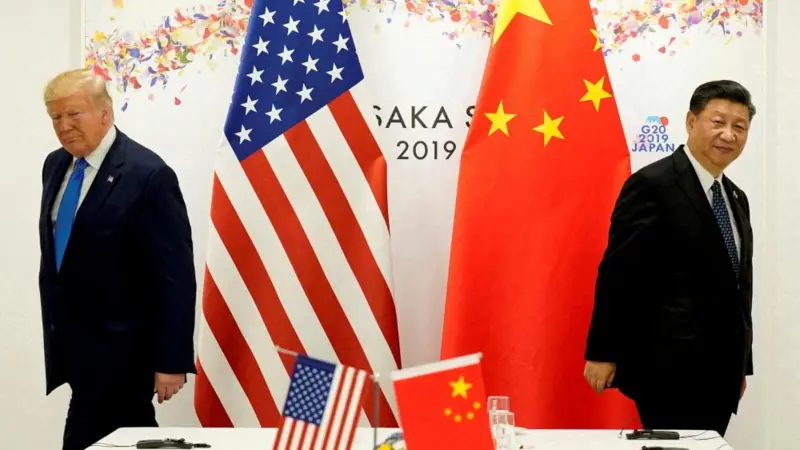In light of recent US tariffs on imported goods, the global trade landscape is undergoing significant shifts, presenting both challenges and opportunities for the United Kingdom. This situation offers the UK a chance to bolster its economic standing and international influence. Experts suggest that a multifaceted approach, involving government policy, business innovation, and consumer support, can pave the way for a revitalised British economy.
Revitalising Manufacturing and Industrial Base
To reduce reliance on imports, the UK should focus on rejuvenating its manufacturing sector, particularly in high-tech, green energy, and medical equipment industries. The increased costs due to US tariffs could motivate businesses to relocate production facilities back to the UK, attracting foreign investment and fostering a competitive economic environment. Supporting innovation and research and development can further enhance the UK’s industrial capabilities.
Advancing a Green Economy and Sustainable Development
With global attention on environmental issues, the UK has an opportunity to lead in green energy and low-carbon technologies. Government investment in renewable energy and circular economy strategies can reduce external resource dependence and position the UK as a hub for green innovation, attracting international investment.
Reforming Trade Policies and Expanding Global Partnerships
In response to changing trade dynamics, the UK should seek new trade partners beyond the US, reducing dependency on a single market. Post-Brexit trade liberalisation allows for agreements with emerging markets such as India, Southeast Asia, and Africa. Active participation in global trade negotiations can secure favourable terms and optimise tariff policies to create a more conducive business environment.
Enhancing Education and Skill Development
Long-term economic growth hinges on a skilled workforce. Investments in education, particularly in innovation and technology sectors, can cultivate the necessary talent. Attracting international professionals further enriches the UK’s human capital, enhancing its competitiveness in the global market.
Improving Business Environment and Fiscal Policies
To strengthen business competitiveness, the government should streamline regulations, simplify business processes, and encourage entrepreneurship, especially in emerging industries. Providing tax incentives and support for small and medium-sized enterprises can stimulate innovation. Transparent fiscal policies and efficient fund utilisation are crucial for sustainable economic development.
Fostering Social Cohesion and National Confidence
In challenging economic times, boosting national unity and confidence is vital. Promoting British culture, values, and creative industries can enhance international influence. Collective efforts can strengthen resilience against economic challenges, fostering a proactive national attitude.
Collective Actions: Government, Business, and Citizens
Government Responsibilities:
1. Policy Support: Implement fiscal stimulus plans to alleviate burdens on industries affected by trade barriers, providing necessary support to impacted businesses.
2. Diplomatic Engagement: Pursue trade collaborations with diverse economies, opening new market avenues and reducing overdependence on single markets.
3. Policy Transparency: Ensure clarity in trade policies to assist businesses in navigating uncertainties and making informed decisions.
Business Initiatives:
1. Supply Chain Diversification: Identify alternative supply sources to mitigate risks associated with reliance on specific markets, adapting to new trade realities.
2. Investment in Innovation: Allocate resources towards technological advancements and sustainable practices, enhancing product competitiveness.
3. Agile Operations: Stay informed about policy changes, adjusting business strategies swiftly to align with evolving trade environments.
Citizen Contributions:
1. Supporting Local Industries: Opt for locally produced goods to bolster domestic businesses, especially those facing international trade challenges.
2. Informed Consumption: Be aware of the origins of products, considering how purchasing decisions impact the broader economy.
3. Active Participation: Engage in discussions about trade policies and economic strategies, contributing to a well-informed public dialogue.
4. Skill Development: Pursue continuous learning, particularly in sectors poised for growth, to enhance personal and national economic resilience.
Conclusion
The current global trade climate, influenced by US tariff policies, presents the UK with both challenges and opportunities. By focusing on manufacturing revitalisation, green economic growth, trade diversification, education, business environment improvements, and social cohesion, the UK can navigate these challenges effectively. Collective efforts from the government, businesses, and citizens are essential to transform these opportunities into tangible economic and social advancements, reinforcing the UK’s position as a dynamic and resilient nation on the global stage.




